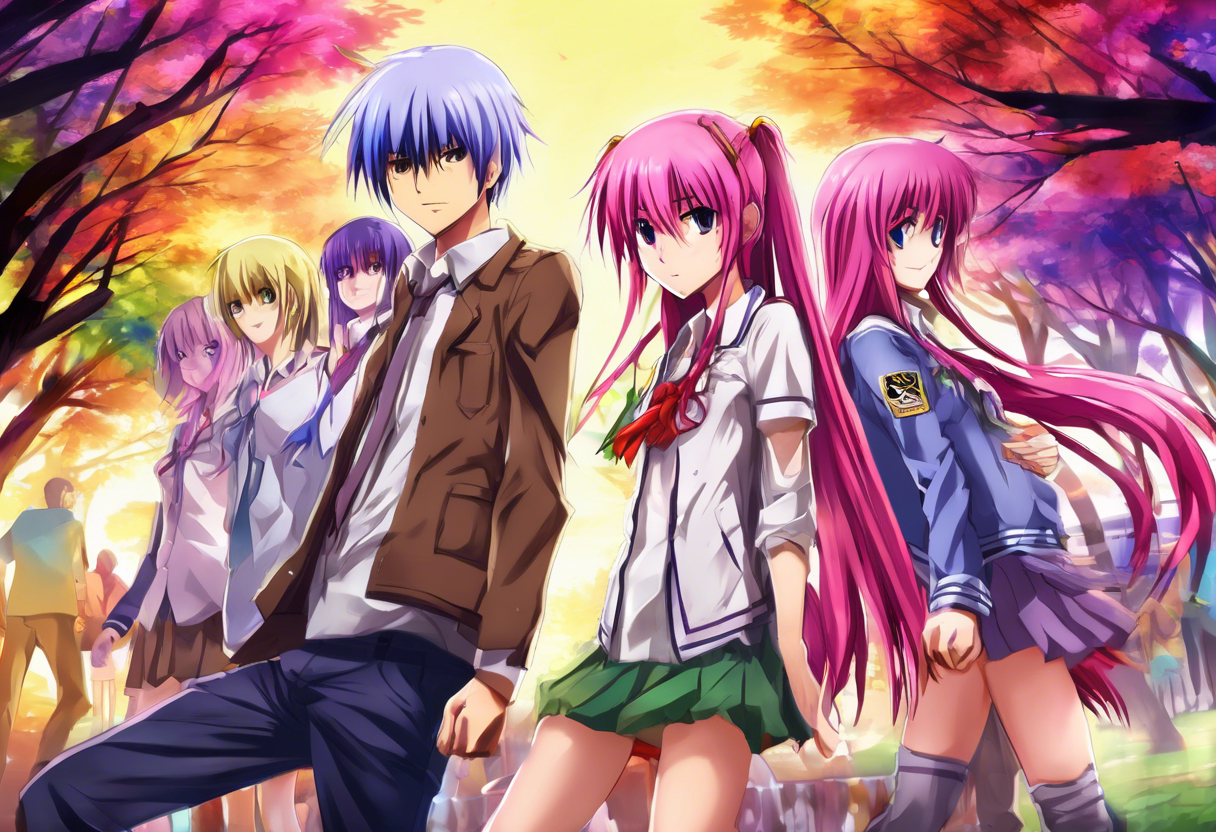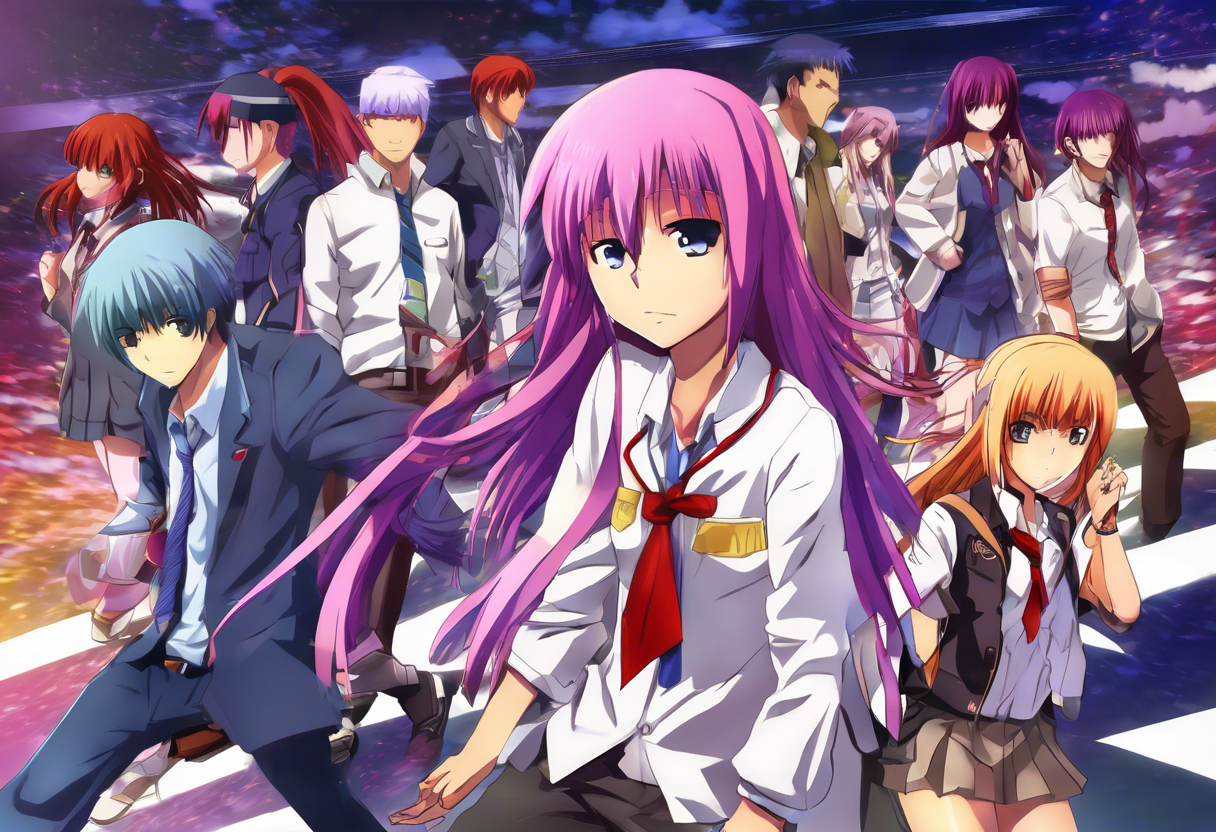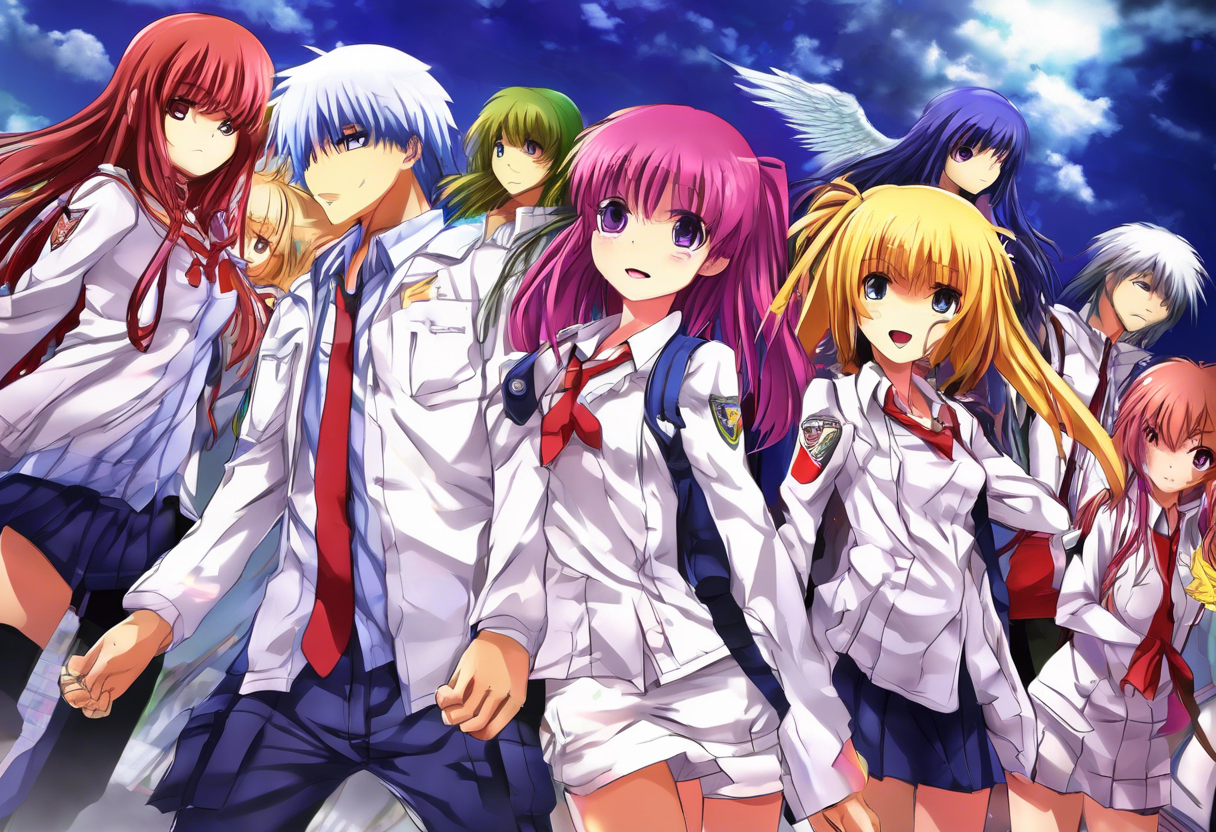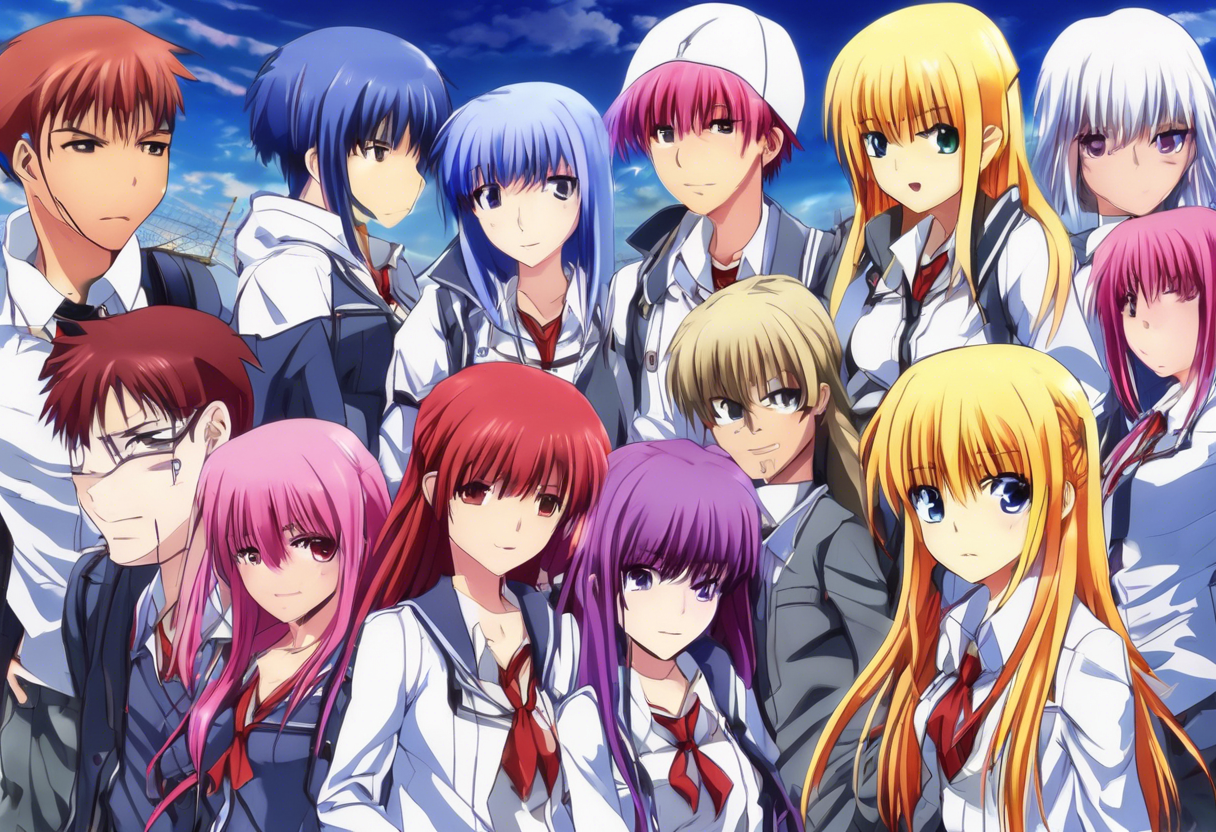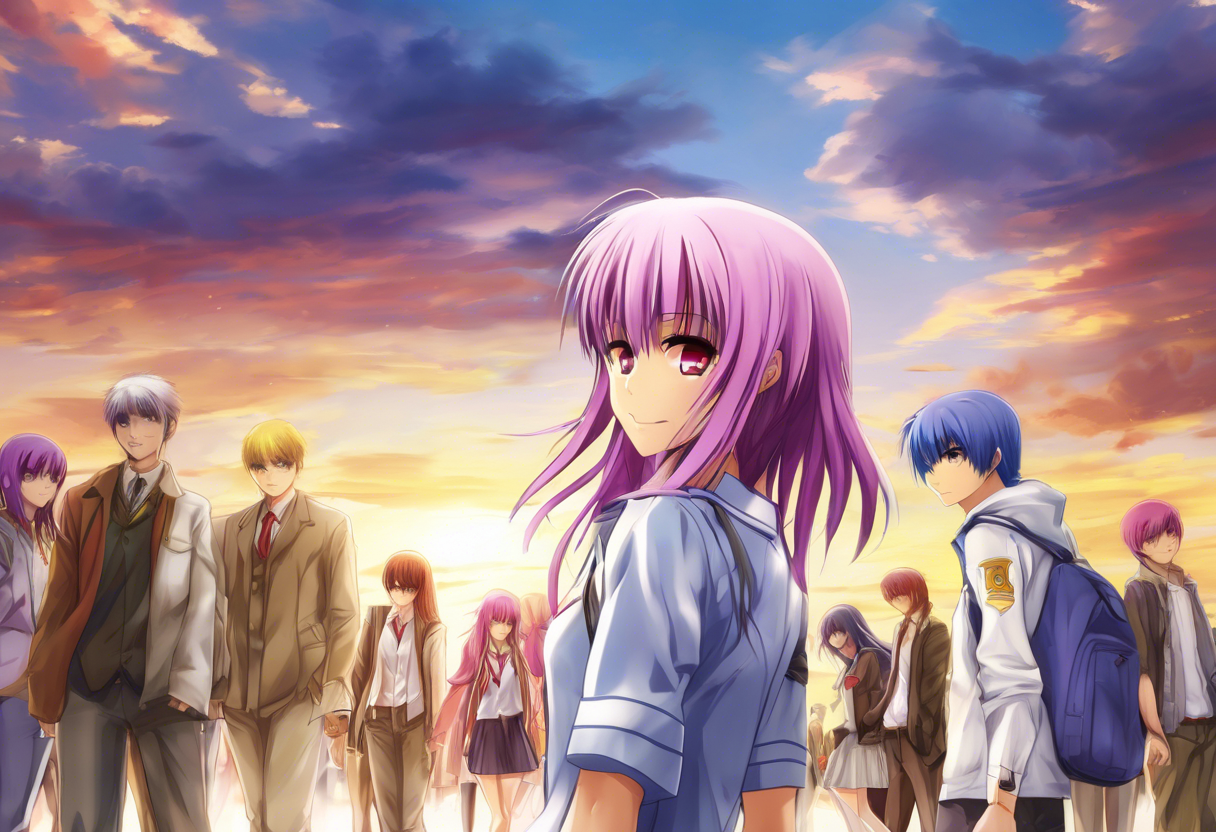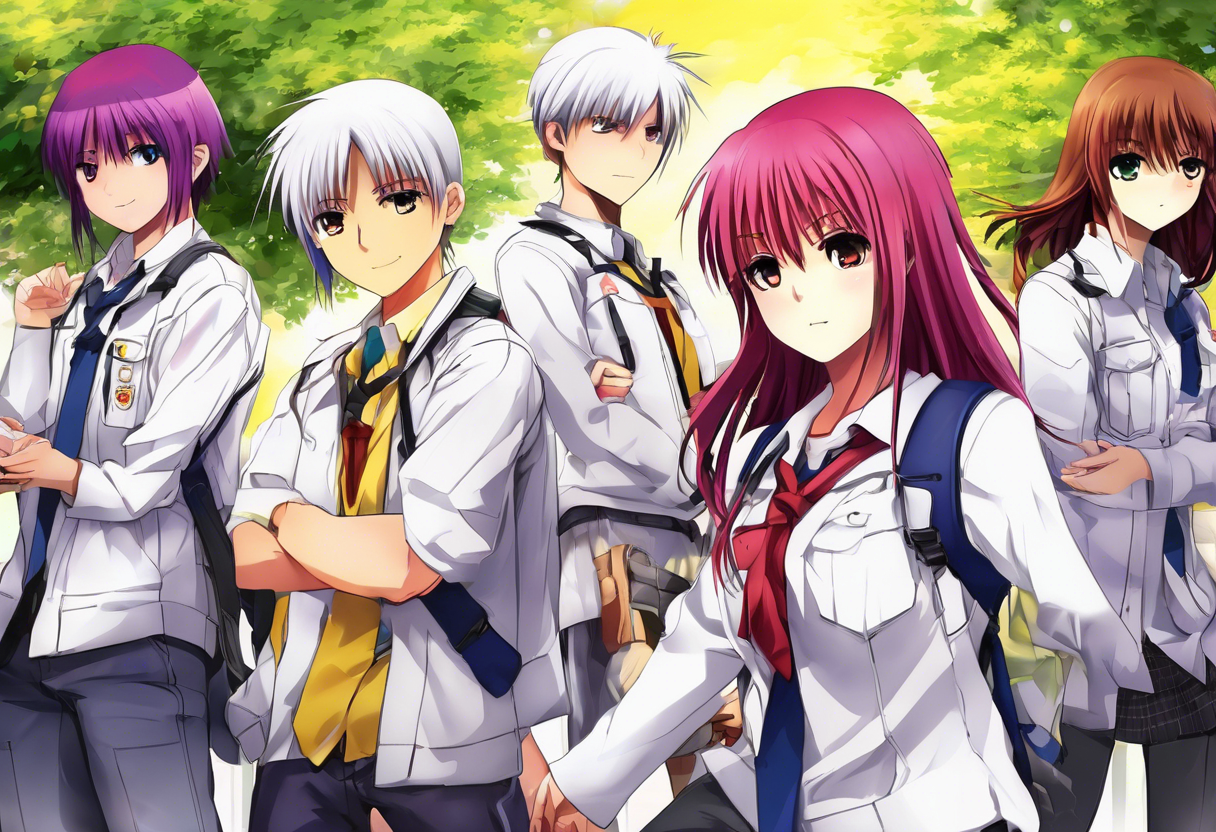Angel Beats! – Episode 4: "Day Game" is a notably distinctive installment in the Angel Beats! anime series, originally directed by Yūji Miyashita and crafted under the guidance of chief writer Jun Maeda. The episode first premiered on April 24, 2010, within the 13-episode run of the series produced by P.A. Works and Aniplex. This episode is framed within the broader context of a supernatural high school setting that serves as a liminal afterlife for deceased youths who face unresolved issues. What sets "Day Game" apart is its integration of a school baseball tournament into the narrative, blending supernatural action with sports drama, while simultaneously expanding character development through the introduction of new member dynamics in the SSS (Afterlife Battlefront) and the vivid, chaotic energy of its music scene with the band Girls Dead Monster. The creative team, including director Miyashita and producer Aniplex, infused the episode with a fresh tonal shift balanced between humor and emotional exploration, distinguishing it within the anime’s genre by juxtaposing the surreal themes of afterlife and existential struggle with the ordinary, competitive spirit of a school sport and band rivalry [1][2][3].
The episode unfolds with the SSS, a group defying the ordination of fate in the afterlife, grappling with the recent loss of their band’s lead singer, Iwasawa. In the wake of this loss, Yui, an energetic and seemingly overzealous character, insists on auditioning as the new vocalist for Girls Dead Monster, the band that symbolically anchors the faction’s morale and unity. Yui’s tryout is marked by an ironic tragedy when she inadvertently kills herself during the audition process, an event that introduces an unexpected and somber layer of consequence even within this deathless afterlife setting. The leadership, represented by Yuri, momentarily relinquishes the decision of filling the vocalist role to the Girls Dead Monster band itself, reflecting an unusual democratization of power in the otherwise command-structured SSS. This plot point segues into the primary narrative event: Yuri orders the SSS members to assemble baseball teams to compete in the school’s upcoming tournament, a strategic move aimed against Angel’s faction, whose members include the school’s official baseball team. This move is less about sport and more about asserting their rebellious presence in the afterlife’s social order.
As the episode progresses, Hideki Hinata and Yuzuru Otonashi are tasked with recruiting team members. The recruitment process reveals much about the SSS dynamics and the various personalities inhabiting the purgatorial high school. Despite initial setbacks in securing top players—many have already joined other teams—Hinata and Otonashi manage to muster a full team by including Yui, Shiina, Noda, and even three female NPCs (Non-player characters), integrating both human and NPC elements into the team. This assembly portrays the melding of human will and game-like deterministic forces that govern the world they inhabit. The ensuing tournament arc is both comedic and dramatic. The SSS teams initially overpower NPC teams, establishing their dominance and strategic skill. However, the narrative intensifies as the SSS faces Angel’s official baseball team, and all SSS teams eventually fall except Hinata’s, which advances to the finals, setting the stage for a climactic confrontation.
The final innings highlight Hinata’s personal conflict and growth, underscored by a haunting flashback to a critical moment in his past life where he failed at a baseball game by dropping a fly ball. This failure symbolizes deeper unresolved regrets and trauma that anchor the character’s existential bargaining in the afterlife. The tension peaks when Hinata faces a seemingly routine fly ball that echoes his past failure. Otonashi attempts to intervene, fearing Hinata’s emotional breakdown and potential disappearance from the afterlife, which signifies passing on from the purgatory school. In a striking moment of conflict and loyalty, Yui physically prevents Hinata from catching the ball, ensuring the opposing team’s victory and showcasing the episode’s complex interpersonal dynamics. Yuri’s frustration at the loss encapsulates the bittersweet tone of resistance and resignation that permeates this world. This loss, however, serves as a narrative pivot, deepening the characters’ bonds and revealing the stakes beyond mere competition, as each member confronts their reasons for staying in or moving on from the afterlife %[1][2][3][4]%.
Thematically, "Day Game" explores the intersection of resistance, teamwork, and the search for meaning within a liminal existence. Its core themes revolve around the struggle against fate, the complexities of interpersonal relationships forged under duress, and the role of memory and failure in shaping identity. The baseball tournament symbolizes a microcosm of life’s challenges, where cooperation, competition, and personal redemption play out in a contained environment. The inclusion of NPCs on human teams blurs the line between free will and predestination, highlighting the tension between autonomy and the deterministic programming represented by these characters. Yui’s character embodies themes of perseverance and the desire for recognition, her energetic but flawed nature reflecting the chaos of grappling with unresolved emotions. Symbolically, the baseball game itself becomes a stage for confronting past regrets, epitomized by Hinata’s flashback and pivotal moments during the match, illustrating how the past continuously shapes the present even beyond death. The presence of music, particularly the Girls Dead Monster band, serves as an emotional leitmotif representing the characters’ yearning for expression, connection, and escape from their stasis [1][2][4].
Culturally, Episode 4 made a distinct impact through its unexpected focus on a baseball tournament amid a narrative otherwise steeped in supernatural and existential themes. This interplay of genres offered a novel approach to storytelling within the anime medium, invigorating the series’ fan base and provoking discourse around the tonal shifts. Upon release, the episode attracted attention for introducing the character Yui, whose vibrant personality and role as a new band vocalist spurred significant fan engagement and merchandise interest. The episode’s depiction of the tournament and ensuing teamwork resonated with viewers familiar with Japanese school culture and its association with baseball as a rite of passage, thus deepening audience connection to the afterlife world’s high school setting. The integration of NPCs into the team also sparked conversations about narrative innovation blending video game logic into anime storytelling. References and homages to classic baseball anime tropes within the episode further embedded it into the fabric of contemporary otaku culture, influencing subsequent media that blend sports with supernatural or existential themes [1][2][3].
Critically, "Day Game" received mixed responses. Many praised its character development, particularly the focus on Hinata’s backstory, which elevated him from a background character to a protagonist with emotional depth. Critics highlighted the episode’s skillful blend of humor and drama, alongside the invigorating soundtrack that features rock and death metal strains, which enlivened the atmosphere and gave distinct energy to the band scenes. However, some pundits criticized the episode for straying from the overarching narrative momentum established in earlier chapters, viewing the baseball tournament as a tangential distraction that diluted the series’ existential tone. The episode’s pacing and visual animation quality were also points of contention among observers noting a drop compared to prior episodes. Despite these critiques, the episode has been generally appreciated for its role in expanding the cast and narrative range of Angel Beats!, serving as both a character study and a tonal palate cleanser within the series arc [2][3][4].
The legacy of Episode 4 endures through its blend of genre-mixing and character exploration, continuing to inspire anime creators and audiences alike. Its willingness to disrupt narrative expectations by inserting a sports tournament into an existential drama exemplifies risk-taking in anime storytelling. The episode also advanced the popularity of the Girls Dead Monster band within the fandom, ultimately influencing spin-off mediums such as music CDs, live performances, and video game content featuring its members. Hinata’s character development set a precedent for exploring minor characters’ backstories in supernatural narratives, enriching the world-building and emotional stakes. The episode’s exploration of teamwork, failure, and personal redemption continues to resonate, affirming its place in anime history as a memorable and innovative installment that contributes to the ongoing dialogue about life, death, and identity in contemporary Japanese media %[1][2][3][4]%.

